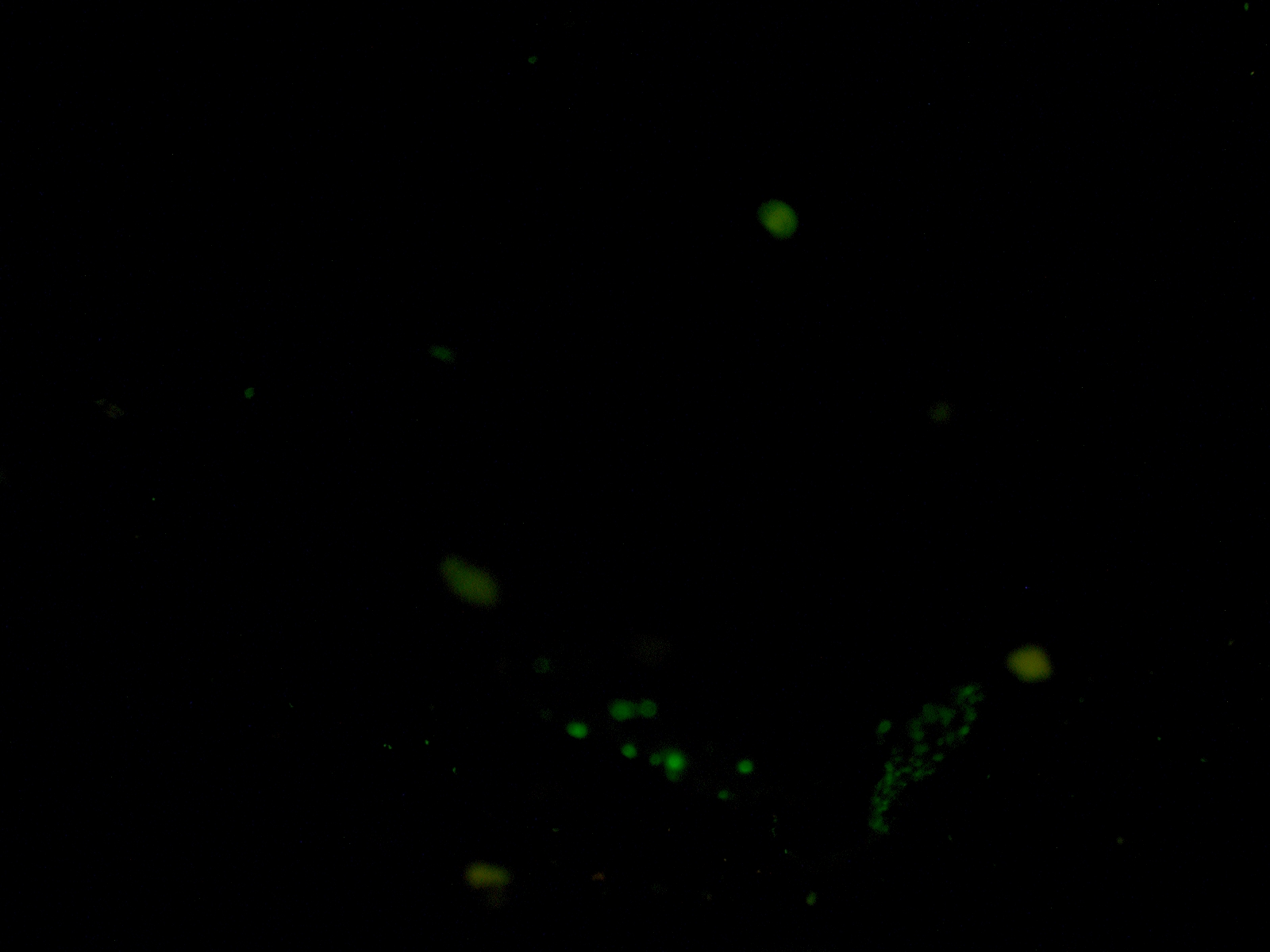Team:BCCS-Bristol/Wetlab/Lab photos/First GFP Experiment
From 2010.igem.org
(Difference between revisions)
(→GFP Soil Visibility Experiment) |
(→GFP Soil Visibility Experiment) |
||
| Line 1: | Line 1: | ||
=GFP Soil Visibility Experiment= | =GFP Soil Visibility Experiment= | ||
| - | We transformed ''E.coli'' | + | We transformed ''E.coli'' with the I13522 biobrick. A suspension of these transformed cells was mixed with soil samples to determine to fluorescence characteristics of ''E.coli'' on soil and to see how long they lived for in sterile and non-steile soil. See "Lab Notes" page for more details. |
Following are some preliminary results: | Following are some preliminary results: | ||
Revision as of 19:01, 22 July 2010
GFP Soil Visibility Experiment
We transformed E.coli with the I13522 biobrick. A suspension of these transformed cells was mixed with soil samples to determine to fluorescence characteristics of E.coli on soil and to see how long they lived for in sterile and non-steile soil. See "Lab Notes" page for more details.
Following are some preliminary results:
| Unsterilised soil with 3x200ul drops of e. coli suspension added 10 minutes before imaging. The E.coli is well mixed and the glow is relatively diffuse. | |
| Sterilised soil mixed with the E.coli and left to grow for 24 hours before imaging. Many colonies survived, though their spread of the soil particles was heterogeneous. | |
| Unsterilised soil mixed with the E.coli and left to grow for 24 hours before imaging. Enough of the E.coli survived to produce a measurable signal - though there appears to be less luminescence than in the sterile soil samples. | |
| Sterilised soil mixed with the E.coli and left to grow for 24 hours before imaging. The two large yellow fluorescent objects were identified to be small fragments of rock. It may be important to make sure that elements like this that produce a large fluorescent signal do not affect our measurements. |
 "
"



